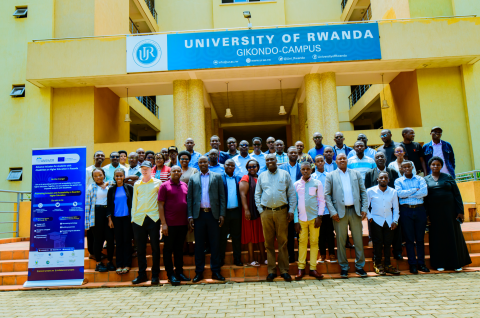
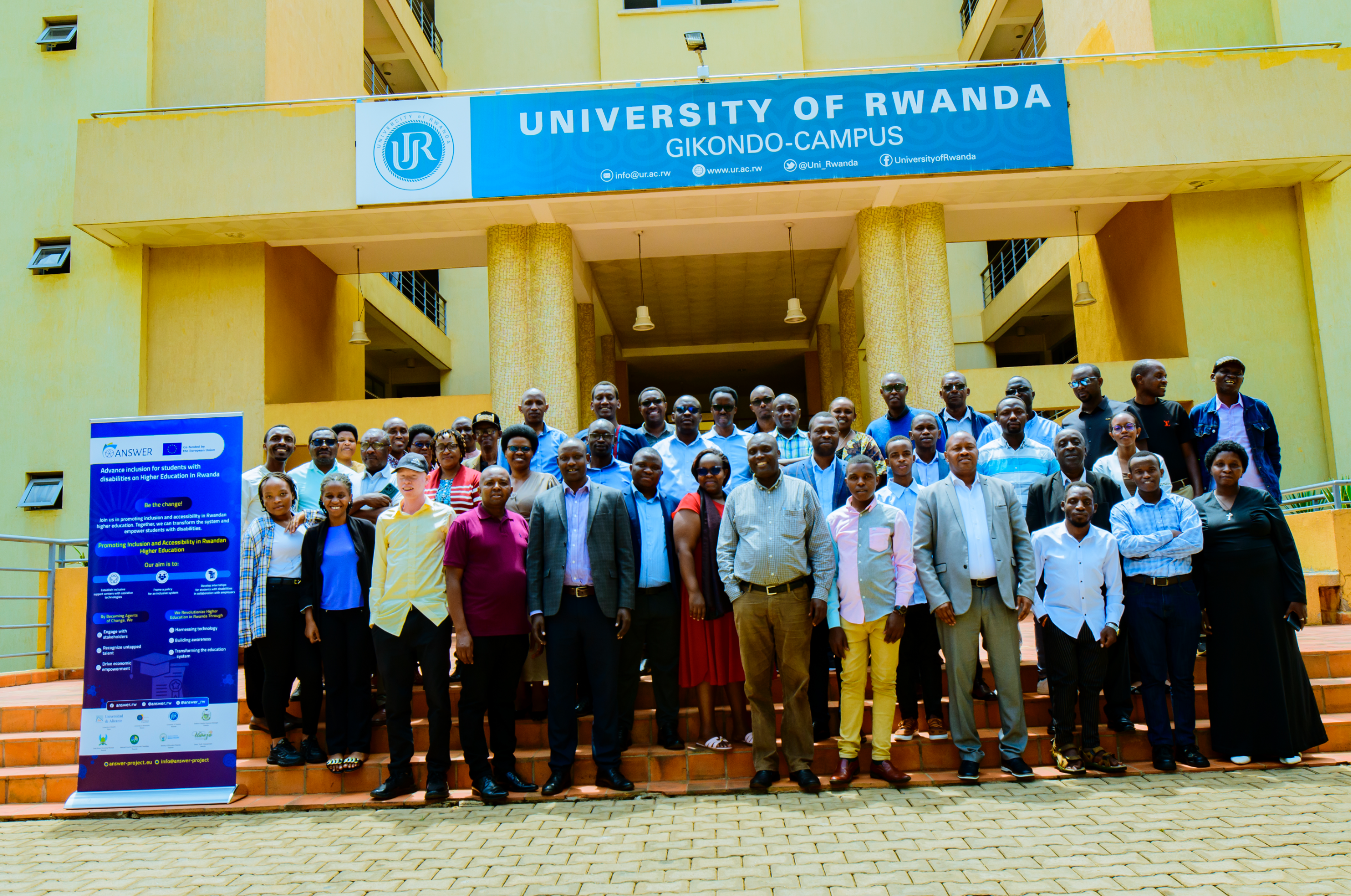
Participants of the UR Answer Project 2nd Pilot Training on Equal Opportunities pose for a group photo at UR Gikondo Campus
The University of Rwanda (UR), under the ANSWER project, is hosting a two-day 2nd Pilot Training at its Gikondo Campus under the theme "Promoting Equal Access in Academic and Social Life for All." Organized by the UR-College of Education through the School of Inclusive and Special Needs Education, the training brings together university staff, students, local government officers, and NGOs to advance knowledge and skills in fostering inclusive education and accessibility.
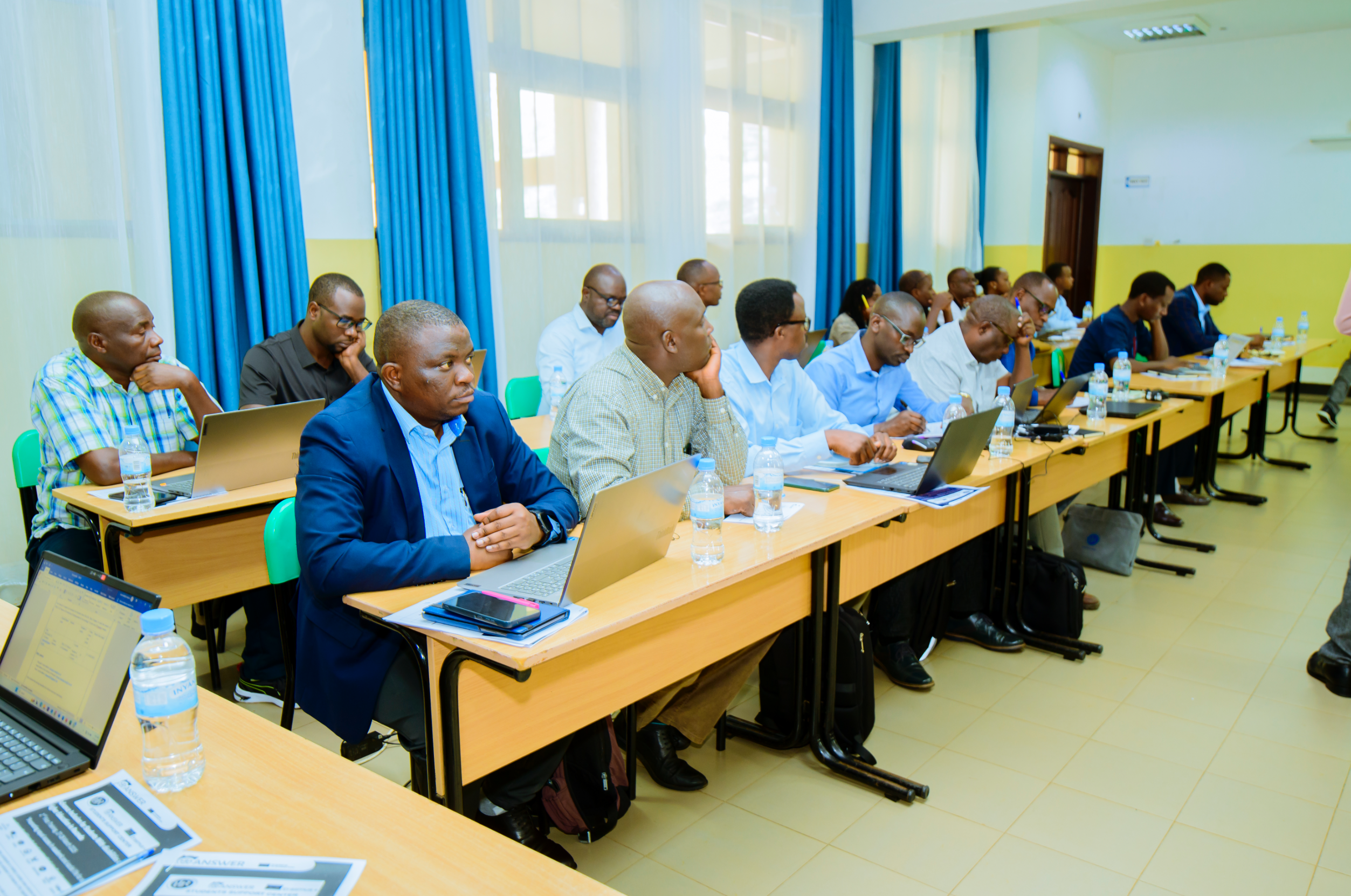
A section of participants in the training
On behalf of the UR-CE Principal, Mr. Alex Karara, Coordinator of the UR ANSWER Project, officially opened the training. He emphasized the importance of organizing such sessions to promote equal opportunities in higher education. He also encouraged participants to actively engage and use this platform to discuss key issues related to equal access and inclusion in academic and social life.
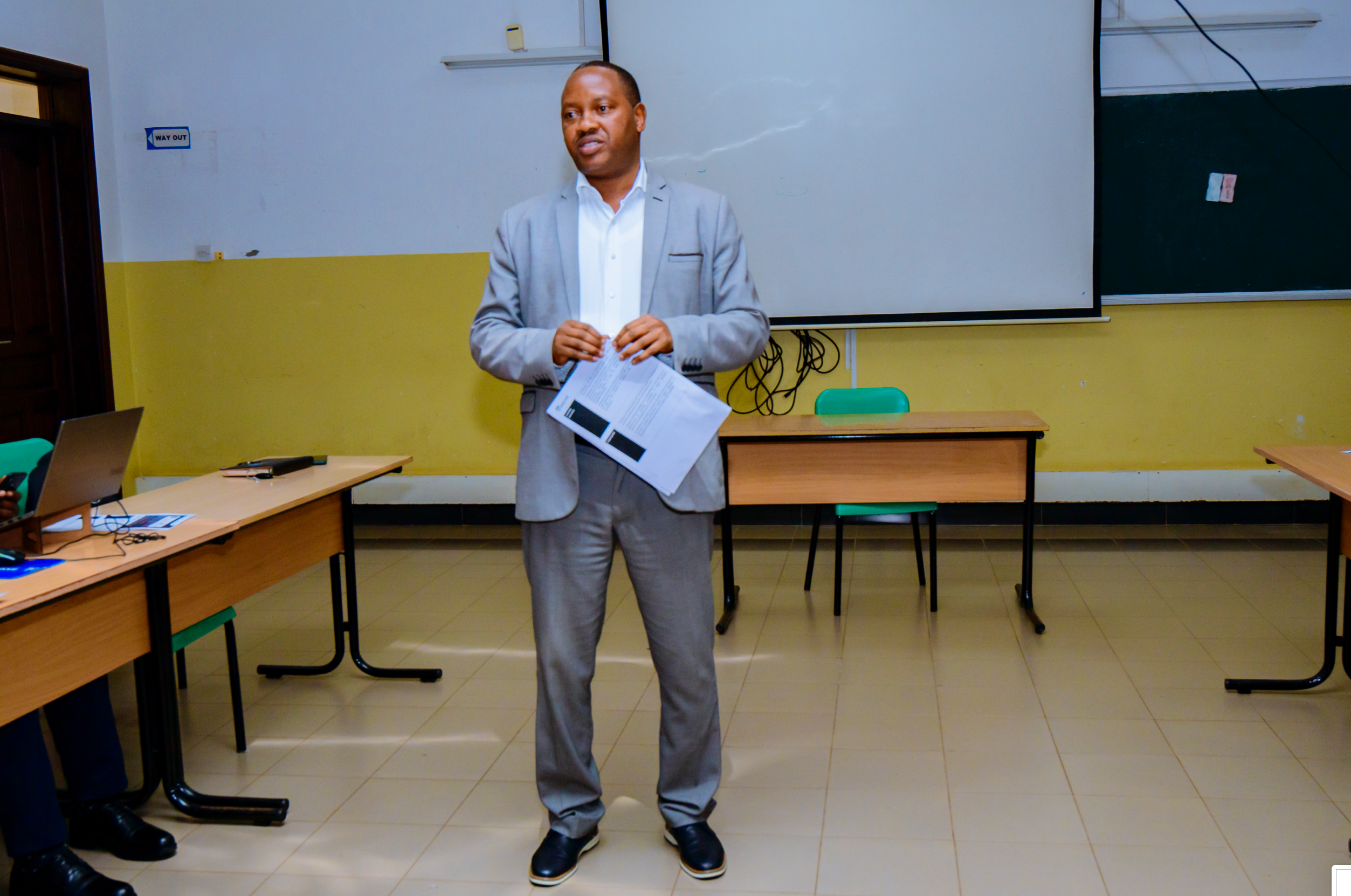
Mr. Alex Karara, the UR ANSWER Project Coordinator during his opening remarks of the 2nd Pilot Training
Empowering stakeholders for inclusive education
The primary goal of this training is to educate participants on how to build a more inclusive society where everyone, regardless of their background or circumstances, has equal opportunities to thrive. Participants will be equipped with practical skills and strategies to address inclusion barriers in higher education and beyond.
Objectives of the training
The training seeks to :
– Educate participants on creating an inclusive society where equal opportunities exist for all.
– Equip stakeholders with knowledge and skills to implement effective inclusion practices.
– Encourage collaboration among university staff, local government, and NGOs to eliminate inclusion
barriers.
Expert-led sessions and interactive methodology
The training is facilitated by Mr. Jean Bosco Nshimiyimana, Mr. Barayagwiza Pierre, and Mr. Jean Baptiste Mushimiyimana, academic staff from the University of Rwanda. The sessions incorporate interactive training methods, including presentations, case studies, group discussions, and debates, ensuring active engagement and knowledge exchange among participants.
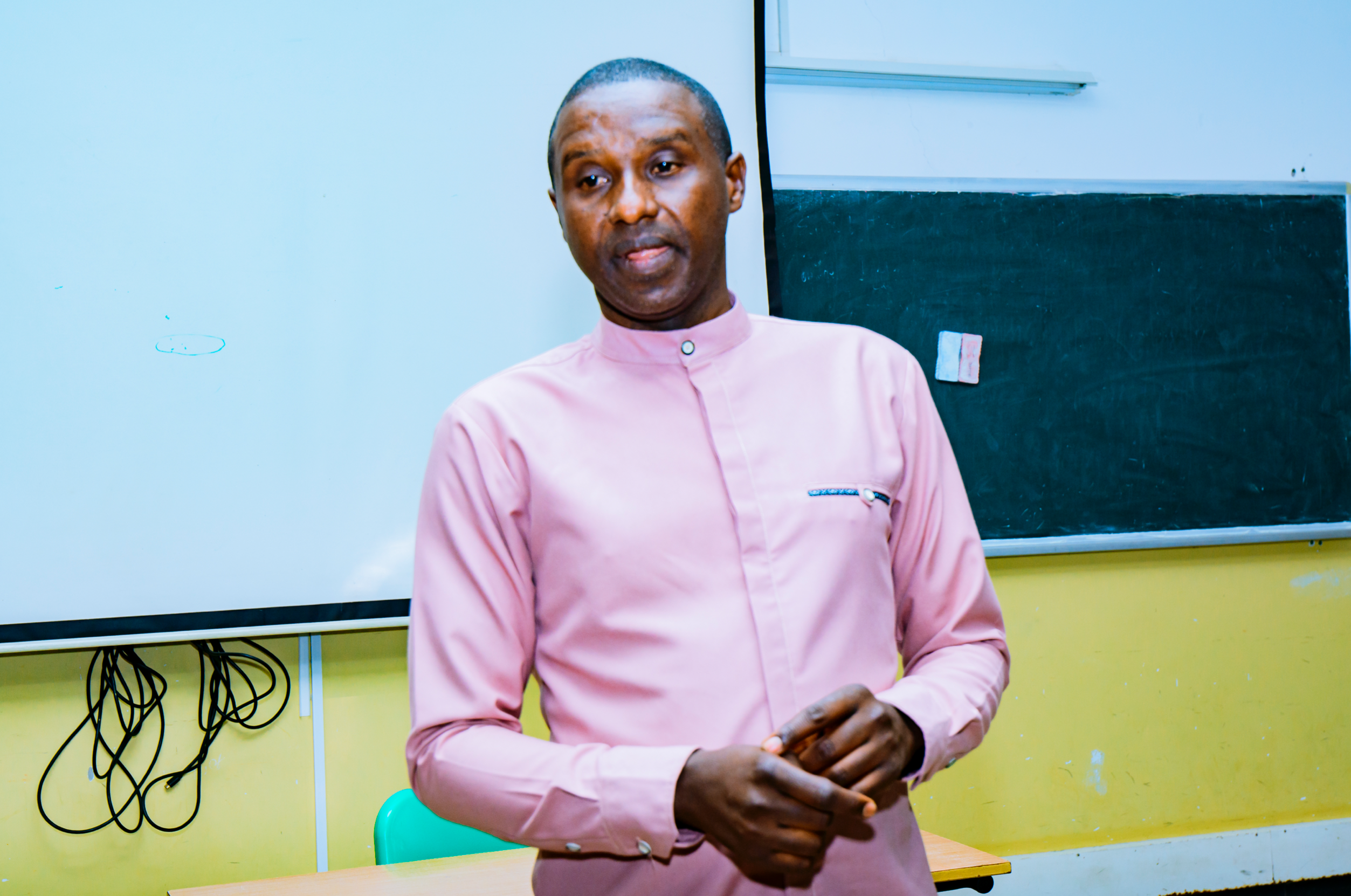
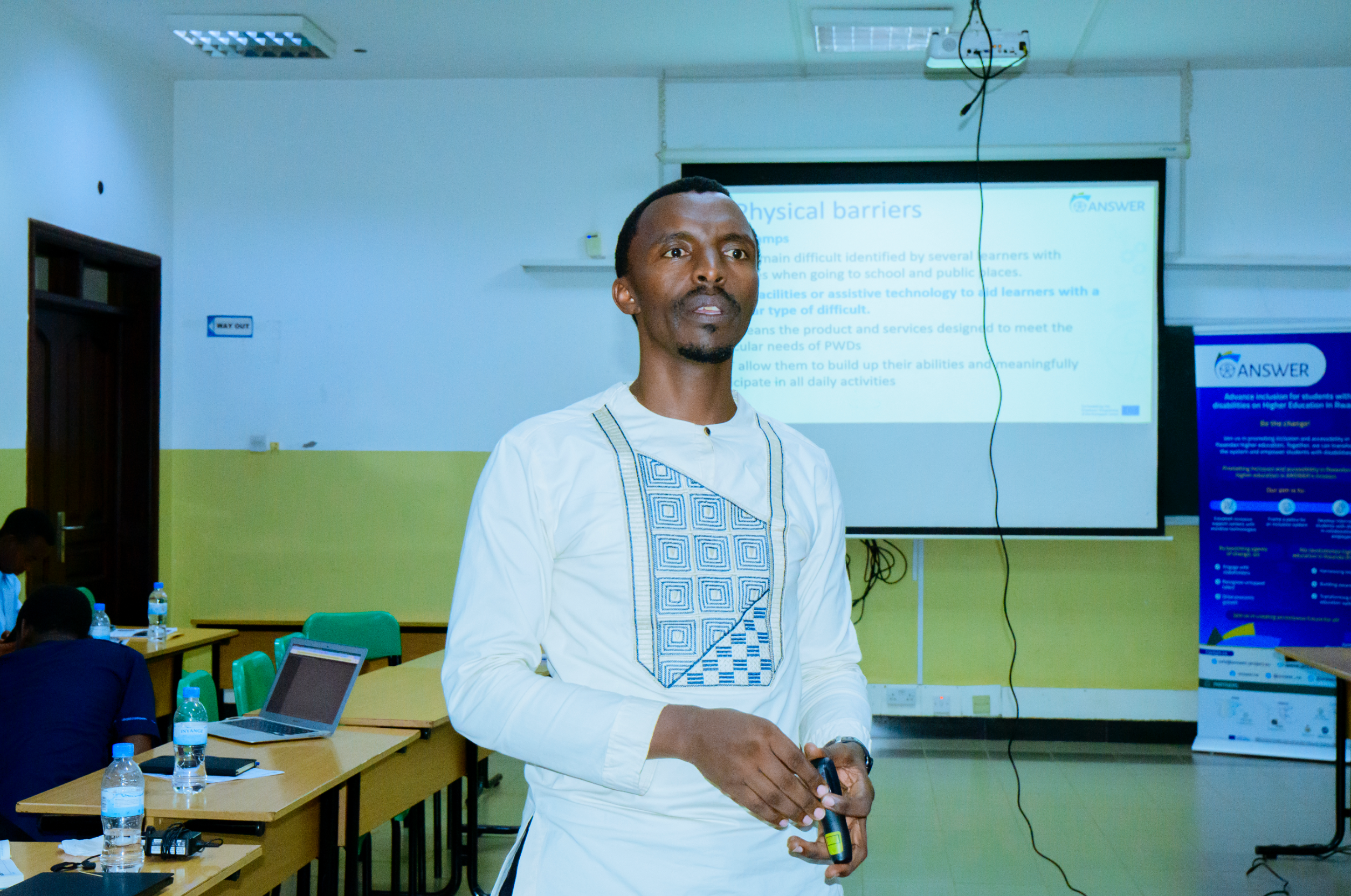
Jean Bosco Nshimiyimana and Jean Baptiste Mushimiyimana during facilitation of the training
Key learning outcomes
By the end of the training, participants will :
– Understand various inclusion barriers and strategies to address them.
– Acquire practical skills to create accessible learning environments and adapt teaching practices for students with disabilities.
– Strengthen their ability to advocate for students with disabilities and foster a safe and engaging academic atmosphere.
Engaging agenda and thematic focus
The two-day program features insightful presentations and discussions, including :
– Transition from schools to higher education institutions
– Assistive technologies at UR Student Support Center
– Disability services structures
– Inclusion barriers and solutions
– Accessibility in higher Education
– Transition of students with disabilities from higher education to the labor market
– Promoting equal access among university services
– Educational adaptations in higher learning institutions
– Promoting Students with disabilities’ access to general curriculum
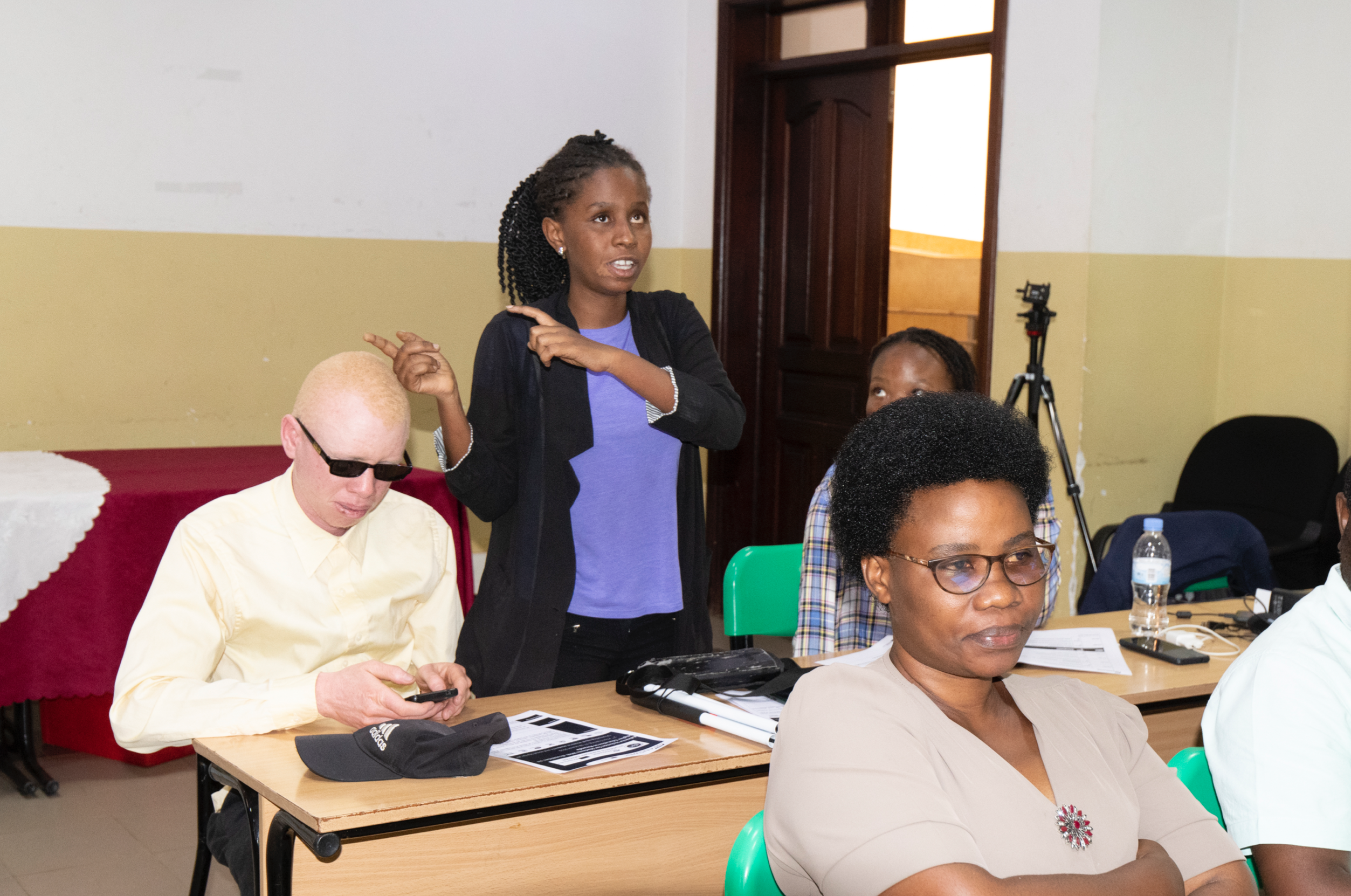
A student with disability addresses the meeting, highlighting key challenges hindering full inclusion in higher education calling for change
A collaborative approach to inclusion
The training targets UR academic and administrative staff, students, local government representatives, and NGOs, reinforcing the collective responsibility of all stakeholders in promoting inclusion. Through group discussions and open forums, participants will explore practical ways to ensure sustainable academic success for students with disabilities in Rwanda’s higher education institutions.
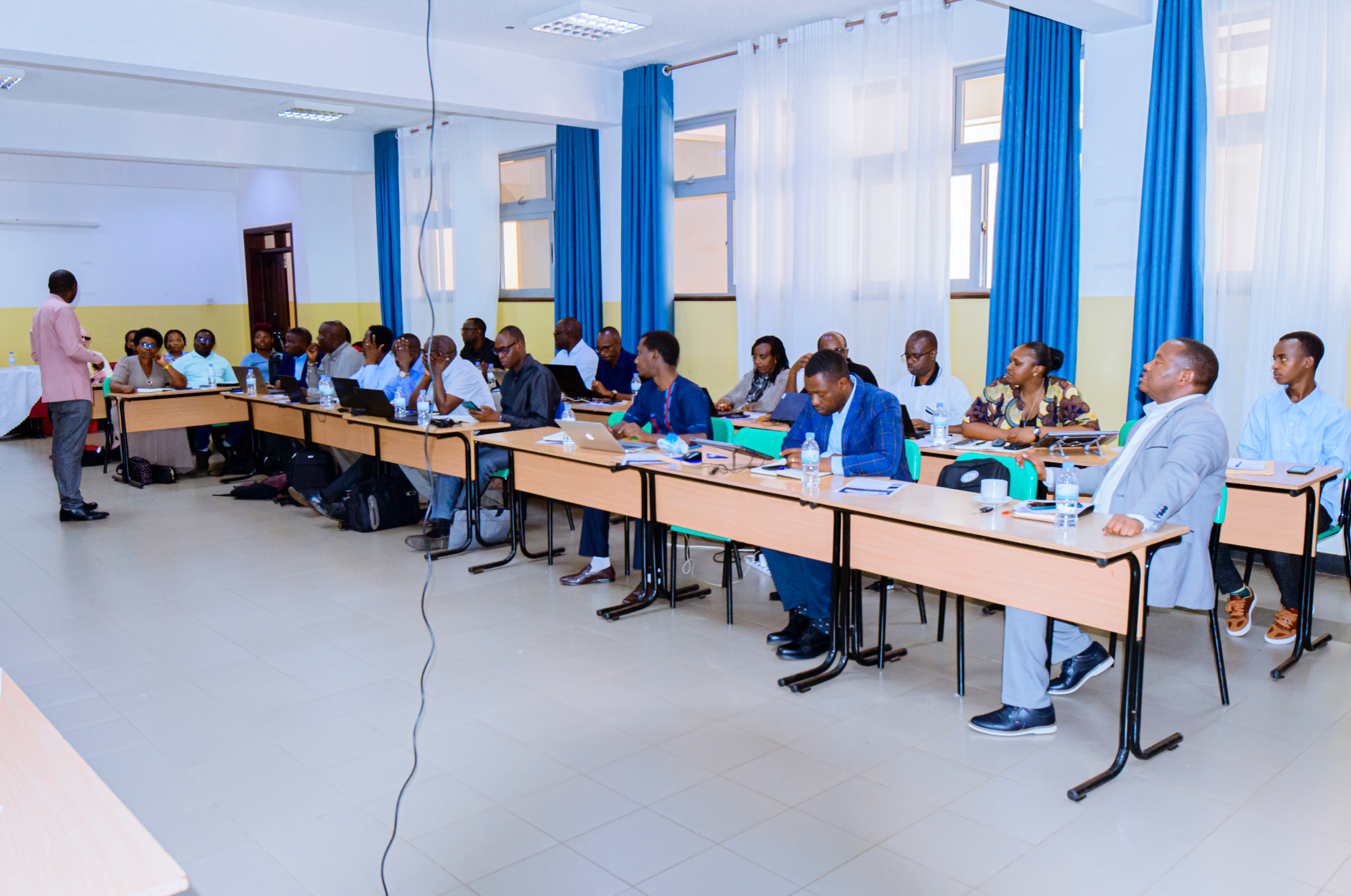
Facilitator Jean Bosco Nshimiyimana addressing participants
This initiative reflects UR’s commitment to fostering an inclusive learning environment and ensuring that no student is left behind. By empowering educators and stakeholders with the necessary tools and knowledge, the ANSWER project continues to make strides toward an accessible and equitable education system in Rwanda.
Story by
NTIRANDEKURA Schadrac
PRO, UR-CE & UR-ANSWER Project Communication Officer





